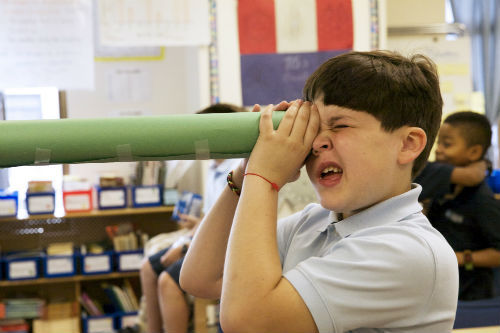
Όταν ο Κουίνσι Τζόουνς επιλέχθηκε για την παραγωγή “Είμαστε ο κόσμος” σε 1985, η ιδέα ήταν ότι θα ήταν μια συλλογική προσπάθεια της μουσικής κοινότητας να δωρίσει το χρόνο και τα ταλέντα της για να κάνει τη διαφορά για τους άλλους σε κρίση. Ποιος μπορεί να ξεχάσει την ιστορία για τα μεγαλύτερα αστέρια της ηχογράφησης στον κόσμο “ελέγξτε τον εγωισμό σας στην πόρτα” – this cause is so much bigger than your celebrity.
Hold that thought and I’ll tell you more about a collective learning event – the Oppi Festival – popping up at Leman Manhattan School in NYC on May 15 και 16. United by a passion for education, talented teachers, ακαδημαϊκούς, φορείς χάραξης πολιτικής, επιχειρηματίες, γονείς, φοιτητές, and cultural and business leaders will step into each other’s worlds for two days to talk, do, κάνω, listen and play with all things about learning. From my personal experience of this global festival last year in Helsinki, bring your best ideas, your best friend and your most comfortable pair of blue jeans.
Many believe we face a crisis in education. According to the International Labor Organization, an agency of the UN, global unemployment stood at 201 million people in 2014, 1.2 million higher than in 2013, and that number is expected to rise to 212 million by 2019. The current worldwide unemployment rate among 15 να 24 year-olds of 13%, which is also expected to increase, is almost 3 times higher than the overall unemployment rate. A mismatch of skills is believed to be a major factor.
Students are the consumers of education. Let’s not make them the casualty. How do we best prepare them for the dramatic socio-economic demands of a digital world in a global age?
Oppi Participant Pasi Sahlberg – @pasi_sahlberg
One issue facing most education systems today is that they are primarily focusing on educating consumers for global labor markets. Growing numbers of these graduating consumers don’t find jobs easily, and some will never find anything that they were initially prepared to do. The expanding number of college degrees in the future leads to the devaluation of formal degrees. They will lose their currency. What education systems should do more than before is to prepare young people, with or without college degrees, to create their own jobs. This requires a different kind of education than what we currently have.
Oppi Participant Siva Kumari – @siva_kumari @iborganization
Some answers lie in the systematic preparation of the student from an early age to synthesize, to think critically, to discern, to communicate, to evaluate data and create knowledge. In the digital era, it’s the responsibility of the adult to educate the student to think critically to convert information into knowledge and not equate the two, to continually learn, and to adapt and to not think of all these tasks as chores but as everyday eventualities. As students are flooded with ever-growing data shared across the world, their ability to critically think through it will become increasingly more important.
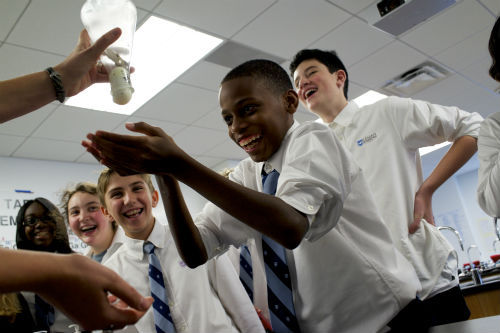
Oppi Participant Andy Hargreaves – @HargreavesBC @BCLSOE
Since the global economic collapse, by comparison with the rest of the population, wealth among the super-rich has doubled but work has not. We need to put wealth to work by distributing it more to increase demand. Πώς μπορεί να βοηθήσει η εκπαίδευση? By developing values that reconnect effort with reward; by creating the social capital of citizenship as well as the individual capital of entrepreneurship; and by making play and creativity the entitlement of all children.
Oppi Participant Maarit Rossi – @pathstomath
Can you feel the atmosphere of a school? Watch the interaction between students and teachers. Are students passive or active learners? How does the school support teachers in instructing and reaching learning targets? If the structure of the school day has a few subjects, teachers can support learning for large themes and use a variety of teaching methods. With basic elements, we can grow students self-esteem, flexibility, περιέργεια, ability to evaluate, communicate and collaborate, thus preparing them for the unpredictable future.
Oppi Participant Steve Mesler – @stevemesler @ClassroomChamps
Anyone who has ever achieved something in life has failed far more than they’ve succeeded. One’s ability to form relationships with likeminded individuals is a central driver to their success. Our goal is to teach youth that with grit and determination, they can accomplish the goals they set in life, and by utilizing technology to create relationships to people who role model those assets, we will give the next generation the best chance to succeed.
Oppi Participant Kati Koerner – @lctopenstages @nycaier
By the time we’ve devised a system for training workers in the technology of today, the market will have already moved on to new technologies. Our schools need to pair dynamic structures for providing tech training, alongside rigorous and logically scaffolded structures to build young people’s critical and creative thinking skills. We believe that arts education is a key part of that holistic approach. ως εκπαιδευτικοί, we need to make sure to infuse tech into our arts and design-thinking into our tech education.
Oppi Participant Jerry Maraia – @JerryMaraia @LemanManhattan
While we can’t know today what the jobs and industries of the future will be, we know there are essential skills that will help students be able to succeed – things like critical thinking, asking questions and problem solving along with flexibility, quick research, ανθεκτικότητα, creativity and on-demand thinking. By building these skills through traditional education and hands-on experiencees, we can prepare young people for the socio-economic demands of a digital world in a global age.
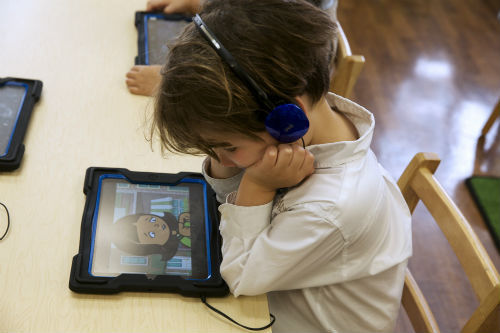
Oppi Participant Former Ohio First Lady Frances Strickland
The current demands of the digital world on our young people will be balanced with the future demand for increased human understanding. As the interest in imagination and creativity grows, learning what motivates people and how to meet their needs becomes fashionable again. Learners will be encouraged to be true to themselves–to know their talents and how they want to use them. Women and girls, using such “δεξιότητες” as compassion and love of peace, will be key in building multicultural learning environments – welcoming diversity and working for the well-being and fair treatment of all.
Oppi Participant Erick Gordon – @ErickGordon @TeachersCollege
We need to allow for a culture of education that fosters curiosity, φαντασία, and play – support students to become creative problem solvers with the flexibility to see connection across domains. But you can’t simply mandate creative problem solving, and mandate tends to lead the culture of American school reform.
Oppi Participant Saku Tuominen – @sakuidealist
We shouldn´t try to guess the skills needed because most likely we will be wrong. Αντί, our mission should be to educate passionate people who are anti-fragile, who flourish, οτι και αν γινει. For me it boils down to two things: creativity and a growth mindset, a combination of being able to solve problems and move from ideas to implementation. A healthy dose of intrapreneurship is needed in every possible area – something we should teach early on.
Oppi Participant Neelam Chowdhary – @NeelamNY @AsiaSociety
It now matters more how young people can navigate change and ambiguity, how they can think creatively and be flexible in environments that shift and change rapidly, and how they can collaborate across borders of all forms. Helping them develop global competence – κριτικής και δημιουργικής σκέψης, ενσυναίσθηση, συνεργασία, understanding multiple perspectives, informed activism – is a path to what is now ‘real world’ preparation.
Oppi Participant Jon Schnur – @Results4America
Our young people have been incrementally improving their educational achievement and attainment, but we are falling behind some other countries and the higher bar needed for success in a fast pace, globalized, technology-infused world. We have teachers, σχολεία, colleges and universities that are global leaders in education. But we can get better, faster. At our best, our schools and classrooms can marry the rigor of academic learning with our strengths of innovation and problem-solving so that young people are prepared for good jobs, citizenship and leadership.
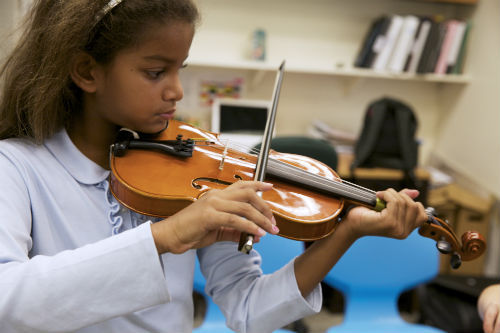
Oppi Participant Steve Moffitt – @a_new_direction @Steve_Moffitt
Can schools really deliver everything we increasingly expect of them – skills for emotional resilience, development of character, cultural education, digital engagement and of course, good academic grades? Are we asking too much and do we need to share responsibility? We believe that fairer distribution and more effective partnership with the web of creative, επιστημονικός, εργοδότης, third sector, and cultural resources that surround schools can help prepare young people for a new and different future.
Oppi Participant Wendy Kopp – @TeachForAll @TeachForAmerica
One of the most fundamental things I’ve learned at Teach For All is that despite the immense differences from place to place, there are remarkable similarities in the challenges the most marginalized children face throughout the world. While this may seem daunting at first, it’s actually good news because it also means that the solutions are shareable. So when a partner in India develops an innovative idea that is showing tremendous results, we can learn from that experience and adapt it to local settings. The power in sharing solutions across borders is immense.
Oppi Participant Gavin Dykes – @gavindk @effdebate
Employment has largely moved from an association with repetitive tasks and compliance, to work involving innovation and creativity, constant thinking, better communications and social awareness. Our relationship with knowledge has shifted from recall to search, assimilation and application. Can we encourage new social enterprise and small business to improve our communities and environment, and to increase the desirability of sustainable living?
Oppi Participant Kevyn Klein – @edmodo
The plethora of mobile devices enables a new mode of communication and discovery; an opportunity to learn from those outside familiar geographic borders and to impact the world. By encouraging today’s youth to collaborate with others and think critically, there can be such a tremendous wealth of knowledge-sharing and learning that results in innovations yielding unthinkable, positive change.
Oppi Participant Christopher Wisniewski – @MovingImageNYC
ως εκπαιδευτικοί, we have a responsibility to prepare young people for a future where how you know is as important as what you know. That requires a pedagogical approach that supports different kinds of learners in the development of hard and soft skills and a focus on the application, not simply the acquisition, της γνώσης. At a system wide level, it also means we have to look at building talent pipelines that will ensure we’re fostering a workforce built on values like creativity, συνεργασία, καινοτομία, and diversity. Those values are more than just social goods; they’re at the cornerstone of the new global economy.
Join a World of Learners on May 15 και 16: http://2015.oppifestival.com/line-up/ @OppiFestival
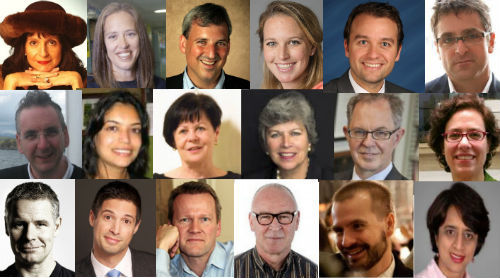
(All photos are courtesy of Leman Manhattan Preparatory School)
Έλα μαζί μου και παγκοσμίως γνωστή ηγέτες σκέψης συμπεριλαμβανομένου του Sir Michael Barber (Ηνωμένο Βασίλειο), Ο Δρ. Michael Block (ΗΠΑ), Ο Δρ. Leon Botstein (ΗΠΑ), Καθηγητής Clay Christensen (ΗΠΑ), Ο Δρ. Linda Ντάρλινγκ-Hammond (ΗΠΑ), Ο Δρ. MadhavChavan (Ινδία), Ο καθηγητής Michael Fullan (Καναδάς), Ο καθηγητής Howard Gardner (ΗΠΑ), Ο καθηγητής Andy Hargreaves (ΗΠΑ), Ο καθηγητής Yvonne Hellman (Η Ολλανδία), Ο καθηγητής Kristin Helstad (Νορβηγία), Jean Hendrickson (ΗΠΑ), Καθηγητής Rose Hipkins (Νέα Ζηλανδία), Καθηγητής Cornelia Hoogland (Καναδάς), Αξιότιμο Jeff Johnson (Καναδάς), Η κ. Chantal Kaufmann (Βέλγιο), Ο Δρ. EijaKauppinen (Φινλανδία), Υφυπουργός TapioKosunen (Φινλανδία), Ο καθηγητής Dominique Λαφοντέν (Βέλγιο), Ο καθηγητής Hugh Lauder (Ηνωμένο Βασίλειο), Lord Ken Macdonald (Ηνωμένο Βασίλειο), Ο καθηγητής Geoff Masters (Αυστραλία), Καθηγητής Barry McGaw (Αυστραλία), Shiv Nadar (Ινδία), Καθηγητής R. Natarajan (Ινδία), Ο Δρ. PAK NG (Σιγκαπούρη), Ο Δρ. Denise Πάπα (ΗΠΑ), Sridhar Rajagopalan (Ινδία), Ο Δρ. Diane Ravitch (ΗΠΑ), Richard Wilson Riley (ΗΠΑ), Sir Ken Robinson (Ηνωμένο Βασίλειο), Καθηγητής Pasi Sahlberg (Φινλανδία), Καθηγητής Manabu Sato (Ιαπωνία), Andreas Schleicher (PISA, ΟΟΣΑ), Ο Δρ. Anthony Seldon (Ηνωμένο Βασίλειο), Ο Δρ. David Shaffer (ΗΠΑ), Ο Δρ. Kirsten Μοναδική Are (Νορβηγία), Στήβεν Spahn (ΗΠΑ), Yves Theze (LyceeFrancais ΗΠΑ), Ο καθηγητής Charles Ungerleider (Καναδάς), Ο καθηγητής Tony Wagner (ΗΠΑ), Sir David Watson (Ηνωμένο Βασίλειο), Καθηγητής Dylan Γουίλιαμ (Ηνωμένο Βασίλειο), Ο Δρ. Mark Wormald (Ηνωμένο Βασίλειο), Ο καθηγητής Theo Wubbels (Η Ολλανδία), Ο καθηγητής Michael Young (Ηνωμένο Βασίλειο), και ο καθηγητής Minxuan Zhang (Κίνα) καθώς εξερευνούν τα μεγάλα ζητήματα της εκπαίδευσης εικόνα που όλα τα έθνη αντιμετωπίζουν σήμερα.
Η Παγκόσμια αναζήτηση για την Εκπαίδευση της Κοινότητας Σελίδα
C. M. Rubin είναι ο συγγραφέας των δύο πολυδιαβασμένα online σειρά για την οποία έλαβε ένα 2011 Βραβείο Upton Sinclair, “Η Σφαιρική Αναζήτηση για Εκπαίδευση” και “Πώς θα μας Διαβάστε?” Είναι επίσης ο συγγραφέας του μπεστ σέλερ τρία βιβλία, Συμπεριλαμβανομένων Η Ρεάλ Αλίκη στη Χώρα των Θαυμάτων, Είναι ο εκδότης του CMRubinWorld, και είναι ένα Ίδρυμα Fellow δι'υπερήχων.
Ακολουθήστε C. M. Rubin στο Twitter: www.twitter.com/@cmrubinworld


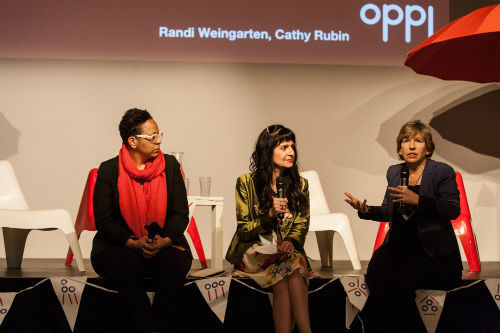



Πρόσφατα σχόλια